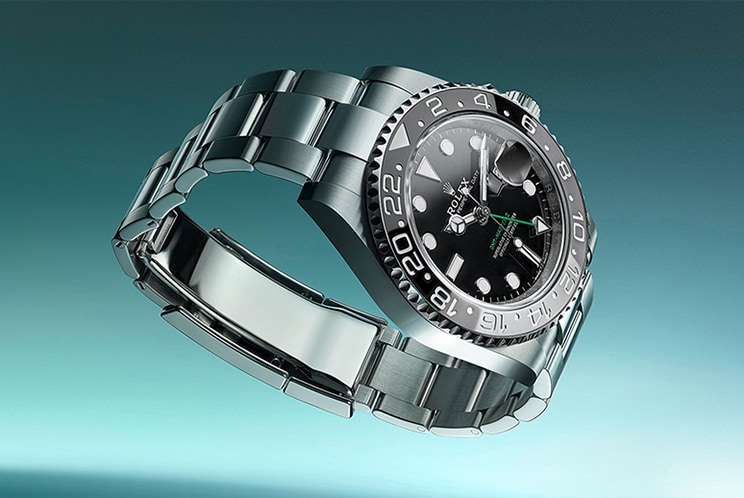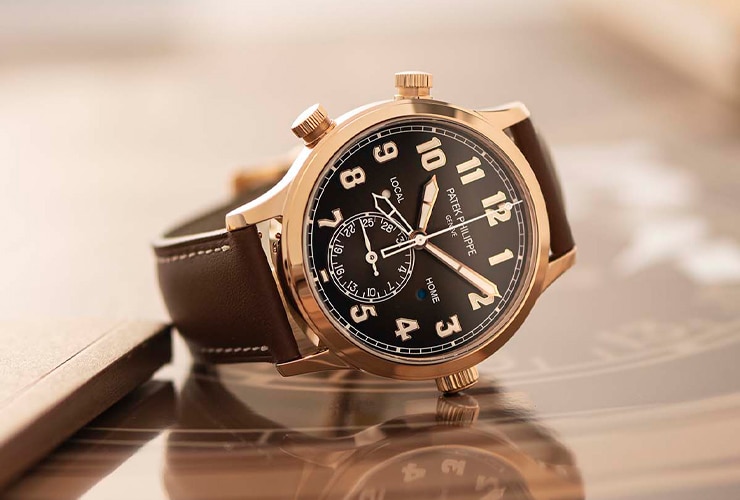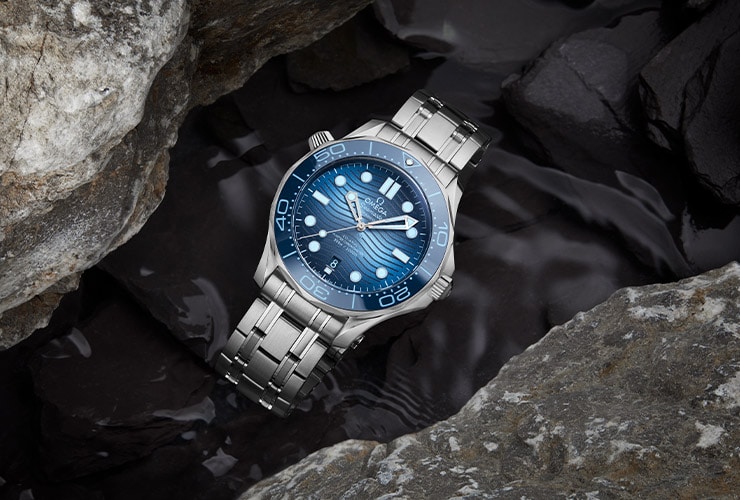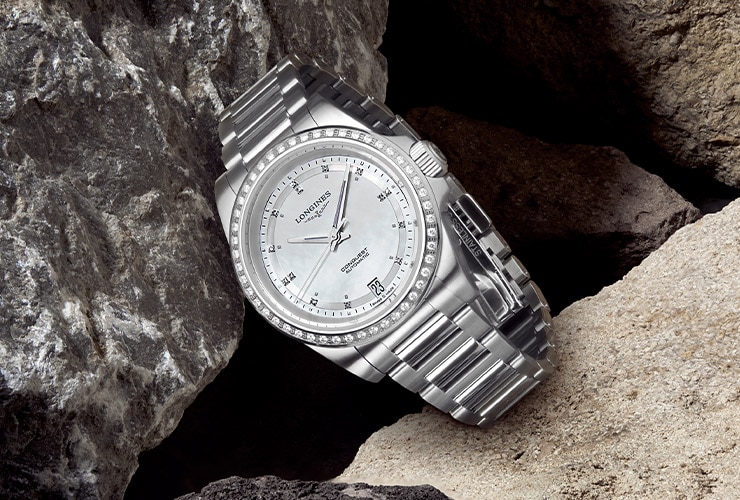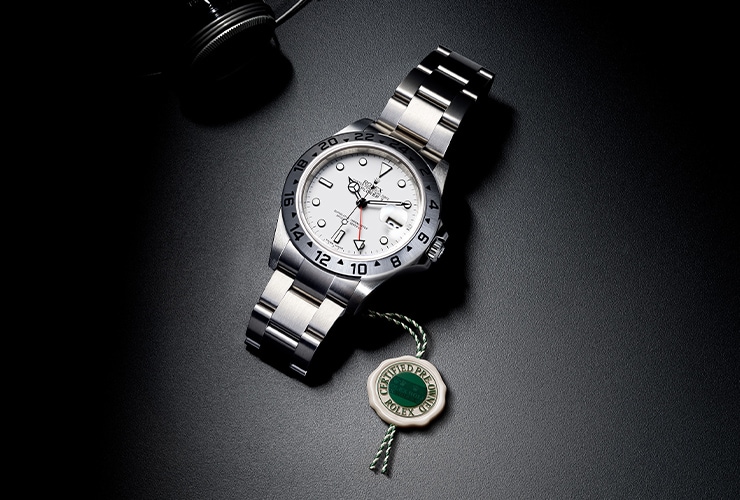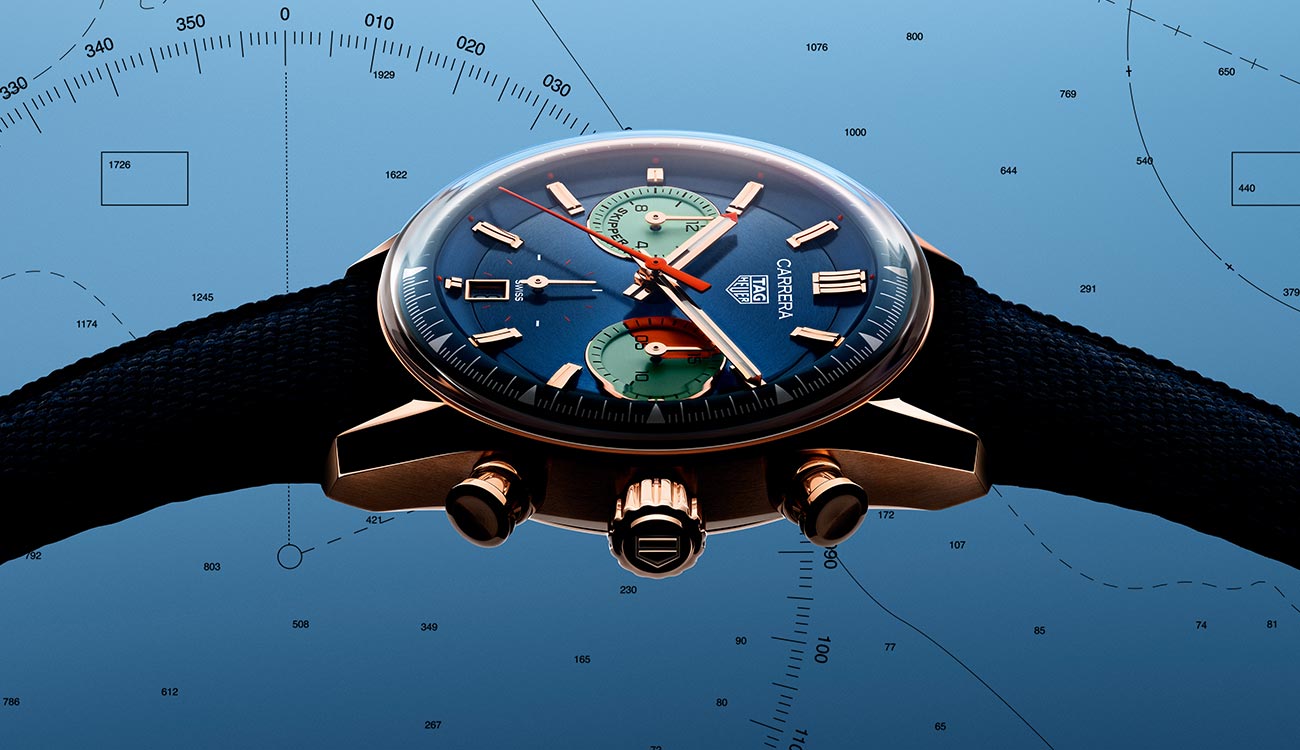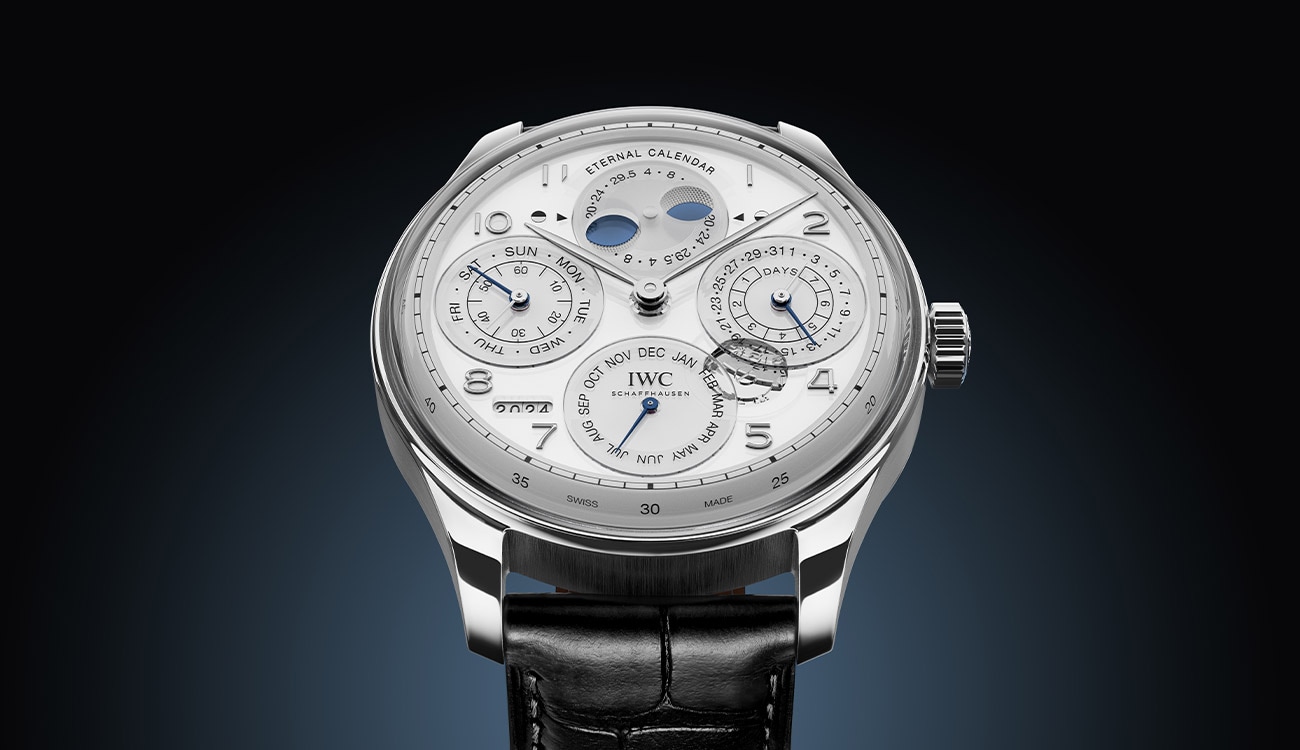- Sale
-
Brands A-Z
FeaturedBrands A-Z
- Rolex
- Rolex Certified Pre-Owned
- Patek Philippe
-
Mens
Popular StylesBy EditPopular Brands
-
Ladies
Popular StylesBy EditPopular Brands
-
Pre-Owned
Popular Brands
-
Sell Your Watch
Sell your watchWe will expertly assess your watch and offer you
a competitive and accurate valuation for the
watch you wish to sell to us.Free Instant Valuation
Drop off at any Showroom
Unrivalled Knowledge & Expertise- Calibre - Watch News & Stories
- Calibre - Watch News & Stories
- Shop by Category
- Sale
-
Brands A-Z
- Back
- View All Brands
-
Brands
- BALL
- Bamford
- Baume & Mercier
- Bell & Ross
- Blancpain
- BOVET
- Breguet
- Breitling
- Bremont
- BVLGARI
- Cartier
- Certina
- CHANEL
- Chopard
- DOXA
- Duckworth Prestex
- FENDI
- Frederique Constant
- Girard-Perregaux
- Glashütte Original
- Grand Seiko
- Gucci
- Hamilton
- H. Moser & Cie.
- Hublot
- ID Genève
- IKEPOD
- IWC Schaffhausen
- Jacob & Co
- Jaeger-LeCoultre
- Junghans
- Kross Studio
- Longines
- Maurice Lacroix
- MB&F
- MeisterSinger
- Montblanc
- Nivada Grenchen
- NOMOS Glashütte
- NORQAIN
- OMEGA
- Oris
- Panerai
- Patek Philippe
- Piaget
- QLOCKTWO
- Rado
- RAYMOND WEIL
- Rolex
- Seiko
- Speake-Marin
- Swiss Capsule
- TAG Heuer
- Tissot
- TUDOR
- Ulysse Nardin
- Vacheron Constantin
- William Wood Watches
- WOLF
- ZENITH
- Rolex
- Rolex Certified Pre-Owned
- Patek Philippe
- Mens
- Ladies
-
Pre-Owned
- Back
- Shop All Pre-Owned
- Pre-Owned Home
- By Category
-
By Brand
- Certified Pre-Owned Rolex
- Pre-Owned Patek Philippe
- Pre-Owned Cartier
- Pre-Owned OMEGA
- Pre-Owned Breitling
- Pre-Owned TAG Heuer
- Pre-Owned TUDOR
- Pre-Owned Jaeger-LeCoultre
- Pre-Owned IWC Schaffhausen
- Pre-Owned Blancpain
- Pre-Owned Breguet
- Pre-Owned Chopard
- Pre-Owned Panerai
- Pre-Owned Rado
- Pre-Owned Vacheron Constantin
- Pre-Owned ZENITH
- Shop All Pre-Owned
- Sell Your Watch
- Calibre - Watch News & Stories
- My Account
- Wishlist
- Store Finder
- Book an Appointment
- Help & Support
- Home
- Watch Buyers Guide
Watch Buyer's Guide
The Watches of Switzerland guide to buying and owning a fine watch. Watches of Switzerland's buying manager, Mark Toulson, offers some advice on finding and maintaining your perfect timepiece.

Know Your Budget
First and foremost, when you come to buy a watch, know your budget. Watches are often compared to cars because of the mechanics involved, but the comparison could just as well apply to your spend. A good Swiss watch can cost anything from £500 to - if you look hard enough - £5m. So it's a good idea to start your search based on how much you want to invest, and then stick to it.
Protecting Your Investment
There are no hidden extras behind any of the watches you see listed on this site, no question about that. But don't forget that if you're buying a luxury timepiece, particularly a mechanical one, that it will need looking after - again, like a car. The brands recommend you get a new watch serviced every three to five years. Over time, lubricants degrade and need replacing before moving parts start to wear out. Worth remembering before you buy - as is that Watches of Switzerland offer a full range of services for when the time comes.
Look Under the Dial
In the broadest of terms, there are two types of watch; those powered by a mechanical movement, and those by a battery-powered quartz movement. Mechanical movements are made up of hundreds of parts and assembled by hand. Because of this, they are more expensive than quartz, both to buy and maintain. Watch lovers feel mechanical movements, which are either manually wound or automatic, are more romantic and have longer value, which is why so many of the top watch brands still make them, even though the technology is hundreds of years old.
Whose Movement is it anyway?
Only a few watch houses make their own movements. In-house movements (sometimes called manufacture or proprietary movements) are very costly and the result of years of R&D;, which is why brands with their own movements make a big deal of it. Watch buyers are prepared to pay more for them too - they hold great kudos. Most watch houses source movements from one of the specialist manufacturers like ETA or Sellita, companies that make excellent, reliable Swiss Made movements.
Taking The Plunge
Water resistance is often misunderstood - the numbers on the dial or case back should almost never be taken literally. For example, a watch with 30 metres water resistance will repel rain, but shouldn't be submerged in water. A watch with 50 metres water resistance can be worn for swimming; 100 metres for snorkelling; and 200 metres for more extreme water sports. Watches suitable for diving tend to be labelled with at least 500 metres water resistance, although those specially designed for professional SCUBA diving might come with 1000 metres or more on the dial. Water resistance isn't permanent either - if you use your watch under water regularly, you'll need to get it reproofed every couple of years.
Size Matters
Watch cases come in all manner of case sizes. The smallest ladies cocktail pieces can be as small as 20mm in diameter, while some men's watches exceed the 50mm mark. Traditionally, 30-36mm was considered a suitable width for a man's watch, but in the last decade case sizes have grown. Some say a classic Patek Annual Calendar at 39mm is the ultimate case size, others feel a watch needs to be bigger, like the 42mm Audemars Piguet Royal Oak Offshore. It's also worth considering the thickness - anything deeper than 10mm can start to play havoc with a cuff. That's one of the reasons ultra-thins have become so popular again recently.
If the Bracelet Fits
Watches with metal bracelets are supplied with more links than most wearers need - it's easier to take them out than source extras. When you buy a bracelet watch at Watches of Switzerland, we will fit it for you, taking out links where necessary. If you're buying online and would like the watch fitted to size when it arrives, measure your wrist with a piece of string and send us the measurement with your order. If the bracelet still doesn't fit, we will remedy this for you (all extracted links are supplied with your purchase). Use our contact details to find out more.
This is where it gets complicated
Mechanical watches get really interesting when you start adding in complications. Many top-end Swiss watches come with complications, or functions in layman's terms. Among these are what you might call 'useful' complications - chronographs, second time zones, annual calendars that show the day, date and month of the year and so on. Some of the most revered horological complications are more focussed on celebrating the art and craft of the great mechanical watchmakers - minute repeaters that chime the time on demand, tourbillons that counter the effects of gravity on a movement, perpetual calendars that never need adjusting, not even in a leap year. Learning about complications can become an obsession...
Collectors Items
If you're planning on starting a watch collection, one of the big questions is where to begin. My recommendation would be to kick things off with a classic, a design that's been around for years. First thoughts turn to a Rolex Air King, an Omega Speedmaster or a TAG Heuer Carrera. They won't date and they'll hold their value well too. If you're past that stage already, think about a Panerai Luminor or a Jaeger-LeCoultre Master Compressor. And if your passion gets really serious, turn your attentions to the horological wonders from one of the 'Big Three' - Patek Philippe, Audemars Piguet and Vacheron Constantin. And there are plenty of quirky brands that will add colour to a collection - try a Nomos or a U-Boat, for example.
In WOS we Trust
Sadly, there are a lot of untrustworthy online watch retailers out there. Watches of Switzerland has been trading the finest watches since 1924 and we have long-standing relationships with the top watch houses. Every brand on this site has given us their seal of approval to represent their watches here, just as they have in our network of showrooms. They trust us, so you can too.
Insure to be sure
A proper watch is a serious investment and like any other valuable I would strongly advise you to consider insuring it. Watches of Switzerland can sort this out for you. Use our contact details to find out more.
Credit where it's due
If you can't stretch to your ultimate timepiece in one hit, Watches of Switzerland gives you the opportunity to spread the payment with our interest free credit scheme, which is available on all watches over £500.00. Use our contact details to find out more.
Try before you buy
You may have already done your research and be in a position to commit to your purchase now, but if you're not 100 per cent sure, it's always a good idea to come in and try a watch on first. That way, you can find out how comfortably it sits on your wrist and whether it looks as good in the flesh as it does in your dreams! Arrange a viewing at one of our showrooms - we'll be glad to answer all your questions in person.
In Conclusion
I've only really scratched the surface of how to go about choosing a luxury watch and what it's like to own one. Each watch is unique in its own way, just like each of us. At any point, if you have questions, or just want to talk about watches, the staff in our showrooms are passionate about them and will happily pass the time of day with you debating the merits of column-wheel chronographs and whether the COSC criteria need tightening up.
© 2024 Watches of Switzerland
Watches of Switzerland is a trading name of Watches of Switzerland Company Limited. Registered Office: Aurum House, 2 Elland Road, Braunstone, Leicester, LE3 1TT, Registered in England and Wales, Company number 00146087. Registered VAT Number 834 8634 04. Watches of Switzerland Company Limited acts as a broker and not a lender and offers finance from Secured Trust Bank PLC trading as V12 Retail Finance and PayPal UK Ltd, Whittaker House, Whittaker Avenue, Richmond-Upon-Thames, Surrey, United Kingdom, TW9 1EH trading as PayPal Credit. Watches of Switzerland Company Limited is authorised and regulated by the Finance Conduct Authority. Our registration number is 308710. Credit provided is subject to age and status, minimum spend applies. Terms and Conditions apply. UK residents only. We may receive a commission if your application is successful, and the amount may vary depending on the product chosen and the amount of credit taken out. Not all products are regulated by the Financial Conduct Authority and FOS protection will not be extended to unregulated agreements. Please note the Consumer Credit Act states that should your purchase / loan amount cost more than £30,000 you will not be covered under Section 75 of the Consumer Credit Act.
*Next day delivery available on most items. See product pages for more information.
